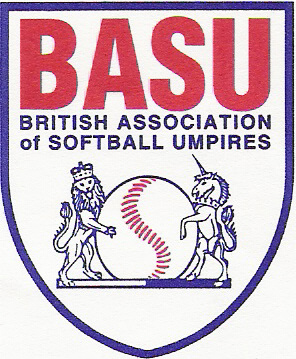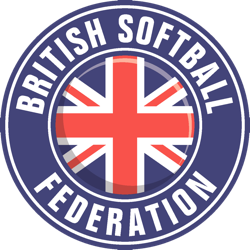 The British Association of Softball Umpires (BASU) held a quick and professional 2014 AGM on Saturday 8 February at the Hough End Centre in Manchester, and made a number of decisions that will affect the upcoming and following seasons.
The British Association of Softball Umpires (BASU) held a quick and professional 2014 AGM on Saturday 8 February at the Hough End Centre in Manchester, and made a number of decisions that will affect the upcoming and following seasons.
It took the 15 umpires present only about an hour-and-a-half to complete the business of the meeting with BASU Umpire-in-Chief Jes Sandhu in the Chair.
BASU membership fees
The longest discussion during the meeting was over BASU fees – not the fees that BASU charges for umpiring games, which will be unchanged for the 2014 season, but rather the fee that it costs to be a member of BASU.
At present that fee stands at £30 per year. However, based on a motion submitted by Membership Officer Peter Jones, the meeting decided to raise the first-year BASU membership fee to £40 – which will include heavily-subsidised BASU clothing – but then to make the membership fee £10 in subsequent years as long as umpires retain their membership, hopefully to be paid by standing order.
If a membership lapses, it will then cost £40 to rejoin.
The rationale behind the proposal is to make it easier for umpires to keep their BASU membership going, even in years when they may not call many tournament games, and for BASU in turn to stay in touch with more qualified umpires.
One of the benefits for umpires of being a paid-up BASU member is that many leagues pay higher fees to BASU members than to non-members for umpiring league games.
Another benefit is insurance. While all players, coaches and umpires working in BSF leagues are covered by the BSF's public liability insurance, umpires who are BASU members get additional coverage for personal accident and injury.
Other decisions
Other decisions made at the meeting were:
- The fee for trainers who run BASU umpire courses will remain at £60 per day in 2014, but will rise to £90 per day in 2015. The fee is meant to be the equivalent of calling six games, and it has been the same for a number of years.
- BASU had planned to run an Advanced Slowpitch Course for experienced umpires this season. However, because BASU is hosting an ESF Slowpitch Umpire Qualification Course in the UK this spring (see below), BASU's own Advanced Course will be postponed to 2015.
- New rules passed at the ISF Congress last October allow for the wearing of some jewellery by players on the field as long as it isn't “distracting” to an opponent, and jewellery was allowed at the recent ISF Slowpitch World Cup in Florida. However, BASU has decided to maintain its own rule on this subject, which is that no jewellery of any kind can be worn on the field of play – including jewellery worn for religious reasons – with the sole exception of a medical bracelet, which must be taped. Whether the ESF adopts the new ISF rules for its tournaments remains to be seen.
- Most games at the 2013 Premier Nationals were run with a two-umpire system, with BASU covering the cost of the second umpire. From BASU's point of view, this allows some less experienced but competent umpires to be assigned to important games in a situation where they can be mentored and supported by a more experienced partner. BASU plans to continue this practice in 2014, mainly for the semi-finals and finals of various tournaments throughout the season.
BASU Officers
Kate Moon is stepping down after several years as the BASU Treasurer, but all other Officers on the BASU Committee in 2013 were re-standing and have been re-elected. They are:
Umpire-in Chief
Jes Sandhu
Assistant Umpire-in-Chief & Website Liaison
Lesley Morisetti
Training Officer & BASU Representative on the BSF Executive
Chris Moon
Secretary
Robyn Belt
Treasurer
TBC
Membership Officer
Peter Jones
Fastpitch Officer
David Hurley
Umpire-in-Chief Report
Umpire-in-Chief Jes Sandhu presented an upbeat report to BASU members.
In 2013, 2,349 games were called by BASU members at 25 different tournaments, and membership in 2013 was up by seven members, at 60 compared with 53 in 2012.
Jes wrote: “We have continued to support all the tournaments across the country that have requested us, with very good results. The regular Crew Chiefs have continued to do a good job and new Crew Chiefs have also done a very professional job. With a little more encouragement from the experienced members, I’m confident they will all become more familiar with the role and become regulars.
“We now have an abundance of new umpires coming into the mix from all over the country,” Jes continued. “I hope our more experienced members will continue to support the new tranche of upcoming and very promising people and I look forward to seeing them improve year on year.”
Jes also congratulated Pete Saunders and Chris Moon for being selected to umpire at the ISF Slowpitch World Cup in January in Plant City, Florida.
Training Officer Report
BSF Training Officer Chris Moon reported that in 2013, two-day BASU courses were held for the East Midlands, Windsor, Bristol, Solent, Leeds and Manchester Leagues (a total of 86 people attended) and and one-day local league courses were held for the GLMSL and Swindon and two courses for Bristol (with 54 attendees). Following the courses, 45 field assessments were carried out at various tournaments through the year.
Unfortunately, a couple of courses in early March were cancelled because of snow, but these will hopefully take place in 2014.
BASU also supported its Fastpitch Officer, David Hurley, to take the ESF Fastpitch Umpire Qualification Course last year. David's success in passing the course, plus that of Canadian umpire Paul Mastalerz, who is prepared to umpire in Europe on GB's behalf, means that we are now much better placed to fulfil our ESF fastpitch umpire requirements. Mike Jennings reported to the meeting that there was no chance of the BSF incurring fines in 2014 for a failure to supply umpires for ESF tournaments.
“Overall,” Chris Moon wrote in his report, “we are very pleased with the current standard of BASU umpires – although of course we will continue to strive to improve.”
Fastpitch Officer Report
Fastpitch umpiring in the UK took a big step forward in 2013, according to BASU Fastpitch Officer David Hurley.
David wrote: “2013 was a much different year for fastpitch umpiring. [Former ESF Umpire-in-Chief] Marlies Struyve ran an informative fastpitch-specific course in May at Richings Park, which was attended by eight umpires, and Marlies was on hand during the first Great Britain Fastpitch League competition day to answer questions and help us work on positioning.
“There were few problems during each GBFL game day,” David continued, “due to the short schedule and the continued good nature of the domestic fastpitch community. All game days except for one were covered by an extremely dedicated core of umpires; there was little need for players to fill in as umpires.... Overall, the situation has improved from 2012 and, while still not the finished product, is a work in progress.”
Another non-qualification Fastpitch Umpire Course to be run by Marlies Struyve is planned for Spring 2014.
ESF Slowpitch Umpire Course
It has now been confirmed that BASU and the BSF will host an ESF Slowpitch Umpire Qualification Course in the UK from 7-11 May. At least eight BASU umpires will attend the course, along with umpires from various European countries. Additional places may be available for BASU umpires if needed.
The classroom and field part of the course will run from Wednesday through Friday (7-9 May) at Richings Park Sport Club, and then the trainee umpires will be assessed while calling games at the first Diamond Series tournament at Farnham Park on the weekend of 10-11 May.
The course will be based on the ESF's three-man system, and those BASU umpires planning to take the course are being advised to brush up on their three-man mechanics before it starts. BASU plans to use some early-season tournaments to give umpires attending the course a chance to experience the system.
Bats and balls in 2014
BASU Training Officer Chris Moon circulated a brief paper at the meeting to update BASU members on issues regarding legal bats and balls that can be used in BSF play this year. The paper can be read on the BSF website: http://www.britishsoftball.org/news/view/bsf-update-on-bats-and-balls-for-2014.
Ben March from Manchester raised the issue of supposedly legal bats that have the required ASA or ISF stickers but nevertheless seem to be particularly “hot”. Such bats could pose a danger, especially to pitchers ad inexperienced infielders. The meeting discussed the advisability and feasibility of buying a bat compression tester, which would cost something over £500, but no decision was made. The issue may be taken to the BSF to see if they would be prepared to share the cost.
Relationships with the softball community
Following the close of the formal BASU AGM, those present at the meeting spent some time discussing the question of whether BASU umpires were perceived by the softball community as too “officious” in the way they conduct themselves while calling games.
BASU Umpire-in-Chief Jes Sandhu acknowledged that British softball is a small community and that most umpires and players know each other, sometimes play with or against each other and are often friends. When a BASU umpire goes behind the plate at a tournament, however, he or she is there to do a professional job umpiring the game, and friendships need to be set aside until after the game or the tournament is over. If anything, Jes thought that if there was a problem, it might be due less to officiousness than over-familiarity.
In the end, the consensus seemed to be that the balance in British softball is probably just about right, and that this balance helps to maintain the friendly nature of the sport in the UK. By comparison, relationships between players and umpires in, for example, British baseball or ESF softball are much more formal and sometimes adversarial, and as a result these games are played with a different atmosphere.
